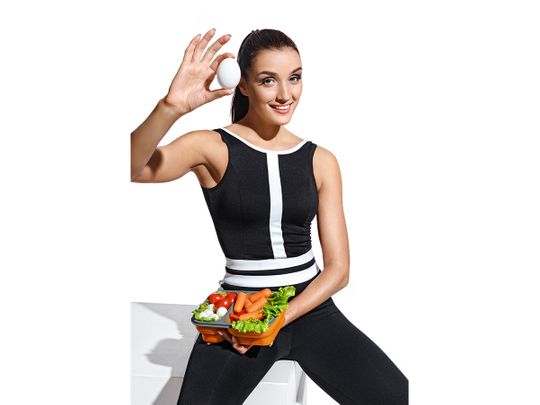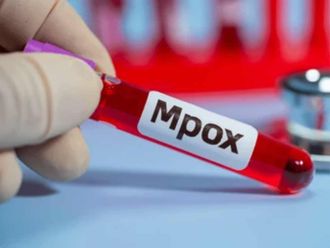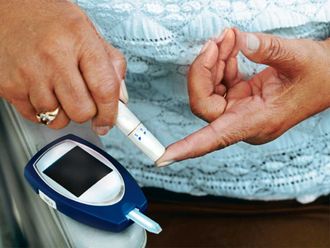
When it comes to diet and nutrition, many health-conscious people among us agree that protein is king. Particularly: the consumption of chicken and eggs. Diet trends, such as the Paleo, Atkins and the recent craze keto have all given emphasis to the importance of eating protein.
We all know protein foods, especially lean proteins, are an important macronutrient group to incorporate into your daily diet. Protein is not only essential for satiating hunger, it’s also vital for feeding muscle repair and tissue growth — plus, your body uses protein to produce hormones, enzymes and other body chemicals.

Chicken is a lean meat with high nutritional value and eating it regularly will help you to stay healthy.
“Chicken is a lean meat with high nutritional value and eating it regularly will help you to stay healthy,” says Jasna Kizhakkeveetil, Dietician, Aster Clinic, Al Qusais. “As part of a balanced diet, eggs can provide many health benefits. A growing body of research suggests that eating eggs can also support weight loss. Eggs are rich in protein, low in calories and they boost metabolism.”

Eggs and chicken, especially chicken breast, are considered high sources of protein, which is required in adequate amounts to build muscles and reserve your muscle, mass
Dana Al Shakaa, Dietician, American Hospital Dubai, says eggs are high in vitamin D, selenium and protein, making it a healthy part of a balanced diet. “Chicken is a lean protein and a low source of saturated fats if consumed boneless and skinless. However, chicken and eggs have no weight-loss properties, unless consumed in high amounts to replace carbohydrates, and this is not the ideal way to lose weight.”
Ask any bodybuilding enthusiast — or fitness-conscious person — about his go-to source of lean protein and the answer is virtually always the same: chicken breast or eggs (mostly whites). Easy to cook, relatively cheap, and virtually devoid of fat and carbs, these two have (rightfully) ascended to the top of the fitness nutrition pantheon for pretty much everyone but vegetarians. What makes chicken and eggs so special for people into fitness?
“Eggs and chicken, especially chicken breast, are considered high sources of protein, which is required in adequate amounts to build muscles and reserve your muscle, mass,” says Al Shakaa. “Adequate protein intake varies depending on each individual’s calorie needs and exercise intensity.”
For a long time, bodybuilders and fitness fanatics have been known to work down meals made of plain grilled chicken breast along with eggs. Kizhakkeveetil explains: “This does not taste that great, however, it’s protein and low in fat. Egg whites are preferred because of the presence of cholesterol in egg yolk. Egg is around 35 per cent protein, 62 per cent fat and 3 per cent carbs.”

Chicken and eggs contain good content of the amino acid leucine, which is primarily responsible for kick-starting the process of muscle protein synthesis (MPS).
Chicken and eggs are “first class sources” of proteins, which means they contain all the 20 amino acids (essential and non-essential) in them, helping in muscle repair and growth in the human body. “They also contain good content of the amino acid leucine, which is primarily responsible for kick-starting the process of muscle protein synthesis (MPS) i.e., creating new proteins in the muscle cell leading to muscle growth,” says Abhinav Malhotra, Elite Master Trainer, Fitness First Middle East. “Without sufficient leucine in the protein source, MPS is hard to start, hence optimising leucine in every protein rich meal is the key.”
Besides the high-quality protein, essential amino acids, choline, vitamin D and the right kind of fat, eggs are very easy and quick to cook, says Dona Mesmar, Kcal Nutrition Consultant, Gymnation. “As a lean meat chicken will provide you with your RDA of niacin that helps your body produce energy from all the foods you eat and keep your nervous and digestive system healthy.”
So, is there an optimal way to cook chicken and eggs for maximum nutrient absorption? Dana Al Shakaa, dietician, American Hospital Dubai, says, “The cooking method does not affect absorption of the protein, but to keep it healthy it is recommended to use a cooking method that does not require the use of too much oil like baking, grilling, boiling or stir-frying,” says Al Shakaa.
Skinned chicken breast is around 80 per cent protein, while eggs boast of a great bioavailability of all nutrients and essential amino acids. “Soft boiled or scrambled eggs are pre-workout snacks, which can be consumed one hour before one’s training,” says Kizhakkeveetil. “Hard-boiled eggs are hard on your stomach as digestion becomes difficult.”
We also keep hearing that our daily protein intake has to be balanced.
“According to RDA (recommended daily allowance), even a sedentary person requires a minimum of 0.8-1g protein per kg of bodyweight to maintain bodily functions and to synthesise new proteins to replace the ones broken down by daily wear and tear,” says Malhotra..
Mesmar says, “Daily protein requirements can vary from person to person with factors such as bodyweight, training intensity, end goals, etc, affecting the amount of protein that a person should consume. Your best option is discuss these factors with your nutritionist.”













